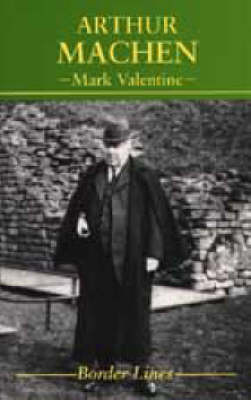Border Lines S.
1 total work
Arthur Conan Doyle called Machen a genius; Oscar Wilde, W.B. Yeats and H.G. Wells admired him.
His classic horror novel The Great God Pan, which both shocked and delighted contemporary readers with its dark portrayal of sexuality and its alluring villainess, has been favourably compared to Stevenson's Dr Jekyll...
Arthur Conan Doyle called Machen a genius; Oscar Wilde, W.B. Yeats and H.G. Wells admired him.
His classic horror novel The Great God Pan, which both shocked and delighted contemporary readers with its dark portrayal of sexuality and its alluring villainess, has been favourably compared to Stevenson's Dr Jekyll and Mr Hyde; his The Secret Glory changed John Betjeman's life; while his masterpiece The Hill of Dreams, located in his beloved Gwent, has been called the most beautiful book in the English language.
It is a testimony to his writing skill that through one short story, The Bowmen, he once made thousands believe that angels had appeared at the Battle of Mons, sparking a whole series of myths.
By turns a translator of Casanova, a strolling player and war-time journalist, Arthur Machen was throughout his life a dedicated writer and an explorer of the supernatural. An important and convivial figure in the literary circles of the late nineteenth century, he was also a member of the Order of the Golden Dawn, a group which studied the occult, and remained a life long friend of the group's founder A.E. Waite. He was also steeped in Welsh history and legend, and his imaginative reworking of Celtic myths make him an important figure in Anglo-Welsh literature.
Largely neglected by critics and biographers, Machen has remained an inspiration to those readers who have sought him out, and current admirers include cellist Julian Lloyd Webber and TV personality Barry Humphries. Mark Valentine's biography, the first in many decades, provides a much needed re-examination of Machen's varied and fascinating career.
Mark Valentine is on the advisory board of the Arthur Machen Society, and has written and spoken widely about Machen himself and the Decadent literature of the late nineteenth century in general.
